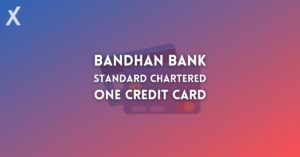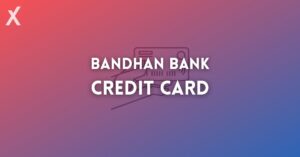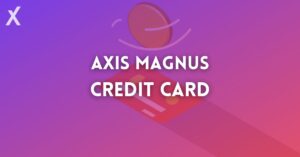Credit cards are now an essential element of all everyday financial transactions. It provides flexibility and ease, making it simple to plan travels, make purchases, and settle accounts. But this convenience also comes with a big responsibility. When misused, credit cards can be a double-edged blade that puts you in trouble. We will discuss every aspect of proper use of credit cards in this complete article.
Understanding Credit Cards

What is a Credit Card?
A Credit Card is a financial tool that allows you to borrow money up to a predetermined credit limit to make purchases. Instead of using cash, you are essentially taking a short-term loan from the issuing bank or financial institution.
How credit cards work
Credit Cards operate on a monthly billing cycle. When you make purchases, the amount is added to your credit card balance. You are required to pay at least a minimum amount by the due date, and any remaining balance carries over to the next month, subject to interest charges.
Different types of Credit Cards
Credit Cards come in various forms, each designed for different needs. These may include standard Credit Cards, rewards cards, travel cards, and secured cards for those with limited or poor credit history.
The Do’s and Don’ts of Credit Card Usage
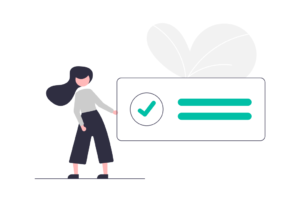
Do’s
- Pay your bills on time: Timely payments are crucial to maintaining a good credit score. Missing payments can result in late fees and damage your credit history.
- Keep track of your spending: Regularly monitor your Credit Card statements and track your expenses. This helps you stay within your budget and avoid overspending.
- Create a budget: Establishing a budget allows you to manage your finances effectively, ensuring that you can cover your Credit Card payments while also saving for the future.
- Understand your credit card terms and conditions: Familiarize yourself with the fine print of your Credit Card Agreement, including interest rates, fees, and any special terms. Knowing what you’re getting into is essential.
Don’ts
- Don’t miss payments: Late payments not only incur fees but also damage your credit score, making it more challenging to secure credit in the future.
- Don’t max out your credit limit: Avoid using your entire credit limit. High credit card balances can negatively impact your credit score and increase your risk of accumulating debt.
- Don’t ignore your credit score: Regularly check your credit score and reports to ensure they accurately reflect your financial history. Mistakes in your report can be costly.
- Don’t use credit for unnecessary purchases: Use Credit Cards for essential expenses and planned purchases, rather than impulse buys or luxury items you can’t afford.
Building a Strong Credit History

- The importance of a good credit score: Your credit score is a numerical representation of your creditworthiness. It affects your ability to secure loans, rent apartments, and even your insurance rates.
- How to establish credit: If you have no credit history, start with a secured Credit Card or become an authorized user on someone else’s account. These methods can help you build credit gradually.
- Maintaining a healthy credit history: Consistently paying bills on time, managing your credit utilization, and having a mix of credit types contribute to a strong credit history.
Credit Card Fees and Charges

- Annual fees: Some Credit Cards come with an annual fee, which can range from a few dollars to several hundred. Evaluate whether the card’s benefits justify the cost.
- Interest rates (APR): The annual percentage rate (APR) represents the interest you’ll pay if you carry a balance from month to month. Seek cards with lower APRs if you plan to carry a balance.
- Late payment fees: Missing your payment due date results in late fees. These can be steep, and they also harm your credit score.
- Over-the-limit fees: If you exceed your credit limit, you may face over-the-limit fees. It’s best to monitor your spending to avoid reaching this point.
- Foreign transaction fees: When using your Credit Card abroad, you may incur foreign transaction fees. Look for cards with no foreign transaction fees if you’re a frequent traveller.
- Cash advance fees: Using your Credit Card to get cash from an ATM typically incurs cash advance fees and high-interest rates. Avoid this unless it’s an emergency.
- Balance transfer fees: Transferring a balance from one card to another often involves balance transfer fees. Evaluate whether the savings on interest outweigh these fees.
Rewards and Benefits
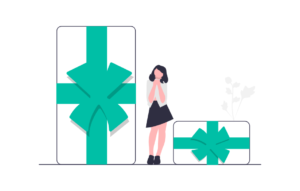
- Cashback rewards: Many Credit Cards offer cashback rewards, which provide a percentage of your purchases back as cash. These can add up over time.
- Travel rewards: Travel Credit Cards offer points or miles for spending, which can be redeemed for flights, hotels, and other travel expenses.
- Points-based rewards: Some cards provide points that can be redeemed for a variety of rewards, from merchandise to gift cards.
- Introductory 0% APR offers: Some Credit Cards offer introductory periods with 0% APR on purchases and balance transfers. These can be advantageous if you plan to pay off a balance or make a big purchase.
- Purchase protection and extended warranties: Credit Cards often come with additional benefits like purchase protection and extended warranties, which can be valuable when making high-value purchases.
How to Choose the Right Credit Card

Assessing your needs and spending habits: Consider your financial goals, spending habits, and credit history when choosing a Credit Card. Match the card’s features to your needs.
Comparing Credit Card offers: Explore different Credit Card options, review their terms, and compare benefits, fees, and interest rates. Online resources and comparison tools can be helpful.
Reading the fine print: Take the time to understand the Credit Card’s terms and conditions. Be aware of any hidden fees or restrictions that may apply.
Read More: BOB Easy Credit Card
Protecting Your Credit Card Information
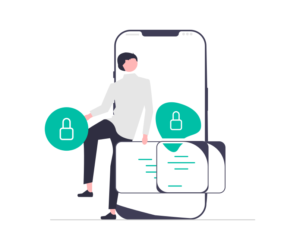
Safe card storage: Keep your Credit Card in a secure location, and don’t share your card details with anyone you don’t trust.
Online Security: When making online purchases, ensure that you are using secure, encrypted websites. Avoid saving your Credit Card information on websites unless it’s necessary.
Reporting lost or stolen cards: If your Credit Card is lost or stolen, report it to the card issuer immediately to minimize your liability for unauthorized charges.
Dealing with Credit Card Debt
- Understanding minimum payments: Paying only the minimum amount due can keep your account in good standing but lead to high-interest charges and a never-ending debt cycle.
- Creating a debt repayment plan: If you have accumulated Credit Card debt, develop a repayment plan. Focus on paying off high-interest debts first, and consider consolidating debt if it helps lower your interest rates.
- Seeking help from a Credit Counsellor: If you’re struggling with Credit Card debt, don’t hesitate to seek the guidance of a Credit Counsellor. They can provide strategies to help you manage and reduce your debt.
Alternatives to Credit Cards

- Debit cards: Debit Cards are linked to your bank account and allow you to spend money you have. They do not involve borrowing or incurring debt.
- Prepaid cards: Prepaid cards are loaded with a specific amount of money and can be used until the balance is exhausted. They are a great option for budgeting.
- Secured Credit Card: Secured Credit Cards require a cash deposit as collateral, making them a viable choice for building or rebuilding credit.
Conclusion

Properly using a Credit Card requires responsible financial management, from understanding your card’s terms to making timely payments. When used responsibly, Credit Cards can help you build a strong credit history, access rewards and benefits, and manage your finances effectively.
Credit Cards can be powerful financial tools when used responsibly. By understanding how Credit Cards work, following best practices, and staying informed about fees and benefits, you can make the most of your Credit Card while avoiding the common pitfalls. By taking the time to learn, you can enjoy the convenience and financial benefits that Credit Cards offer while maintaining a healthy financial future.

